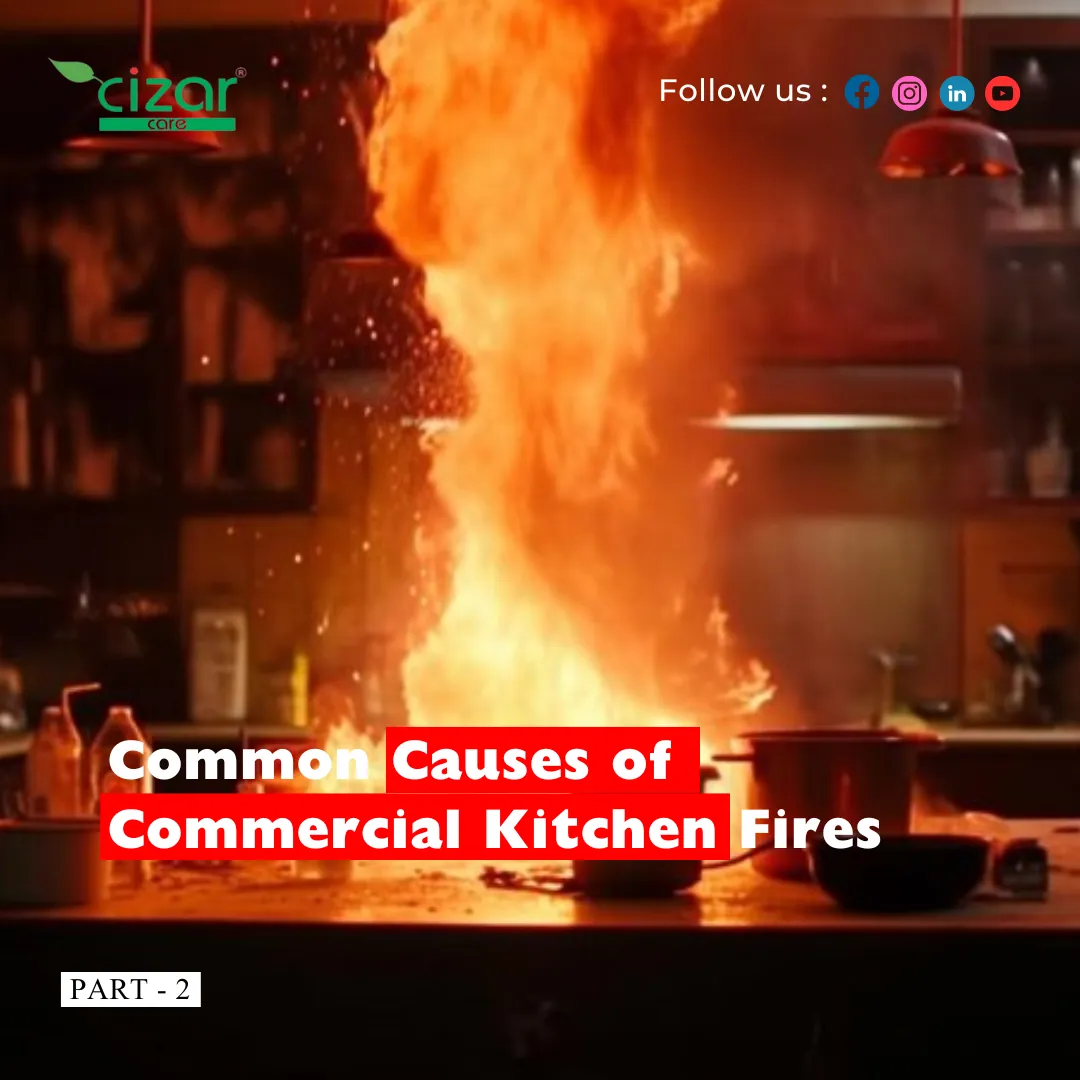
In the previous part, we witnessed the devastating consequences of ignoring a commercial kitchen duct cleaning system. Now, let’s delve deeper into the causes of industrial/commercial kitchen fires, a significant threat to businesses across India.
The Culprits Behind the Kitchen Fire
(1) – Grease Buildup: As we saw in Chef Vikram’s story, grease buildup in the ventilation system is the main cause of kitchen fires. When heated, grease can ignite, causing the fire to spread rapidly.
(2) – Hot Surfaces: Cooking equipment, such as grills, stoves, and fryers, can pose a fire hazard if not properly maintained or operated.
(3) – Electrical Faults: Faulty electrical wiring or appliances can start a fire, especially in high heat and humidity environments.
(4) – Improper Storage: Storing flammable materials like cleaning supplies or paper products near cooking areas can increase the risk of fire.
(5) – Human Error: Careless actions, such as leaving food on the stove unattended or throwing hot grease into the trash, can cause accidental fires.
A Checklist for Kitchen Safety
To safeguard your commercial kitchen from fire hazards, it’s essential to implement the following preventive measures:
(1) – Regular Cleaning and Maintenance:
- Perform a thorough cleaning of kitchen equipment, including ventilation systems, exhaust hoods, and filters.
- Inspect electrical wiring and equipment for wear and tear or damage.
- Ensure proper maintenance of fire sprinkler systems.
(2) – Fire Safety Training:
- Provide regular fire safety training to all kitchen staff, covering topics like evacuation procedures, fire extinguisher use, and prevention of common fire hazards.
(3) – Proper Ventilation:
- Make sure your kitchen has a well-maintained ventilation system that effectively removes grease, smoke, and heat.
- Regularly clean and inspect the ventilation system to prevent grease buildup.
(4) – Safe Storage Practices:
- Keep flammable materials away from cooking areas and heat sources.
- Dispose of grease properly in designated containers.
(5) – Emergency Procedures:
- Develop and practice emergency evacuation plans for your kitchen staff.
- Make sure all employees know the location of fire extinguishers and how to use them.
By following these guidelines and prioritizing fire safety, you can significantly reduce the risk of a kitchen fire and protect your business, employees, and customers.
Follow us for the next part of our series, we’ll dive deeper into the importance of industrial kitchen extraction system cleaning and how Cizar Hygiene Care can help you maintain a safe and clean kitchen environment.
